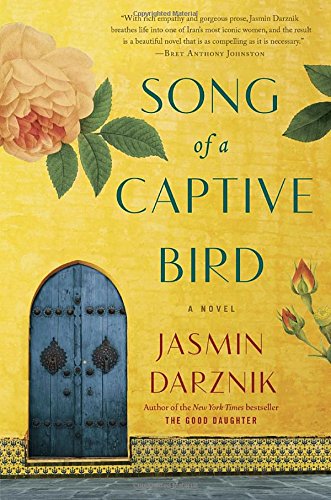Song of a Captive Bird
Iran’s answer to Sylvia Plath, Forugh Farrokzhad, came of age in the 1940s and ´50s when the country was gearing up for revolution. Although Iran was becoming Westernized during Farrokzhad’s childhood, her culture was openly hostile to women who expressed a desire for independence. Forugh is raised by a father whom she refers to as “the Colonel,” a harsh disciplinarian who shows a softer side when he recites poetry. She writes her first poems to please him. However, Forugh is a true rebel, speaking her mind and acting on her desires. The consequences are severe for her but liberating for the younger generation of Iranian women.
Darznik’s novel transported me to mid-20th-century Iran. I could smell the black tea steeped with rose petals and cardamom pods and hear the calls of street peddlers. My heart broke for the young Farrokzhad as she and her sister were “protected” by imprisonment on a tiny balcony as their brothers roamed free on the streets below. The first-person narration, complemented by excerpts from Farrokzhad’s poetry, richly evokes the poet’s state of mind as well as concrete sensory details.
My only quibble is that the epilogue and the passages about Iran’s history are narrated in Farrokzhad’s voice even though she couldn’t have witnessed them. While on the one hand this technique conveyed the power of her voice, on the other, it sometimes felt contrived.
Darznik was only five years old when her family emigrated to America from Iran, and she explores her roots through this iconic feminist poet. I had never heard of Forugh Farrokzhad before I read this book, and her story needs to be more widely known. Highly recommended.










